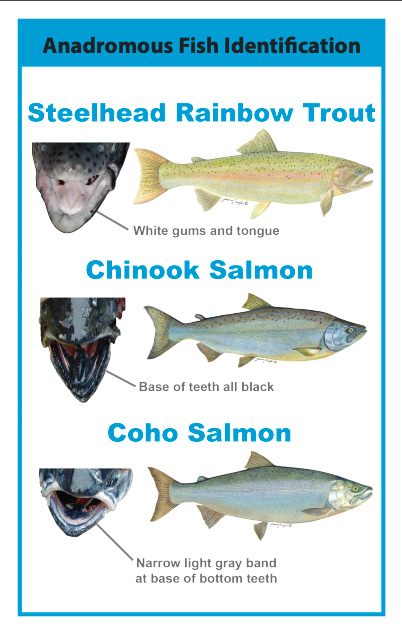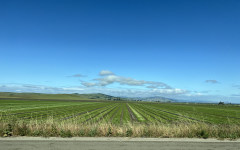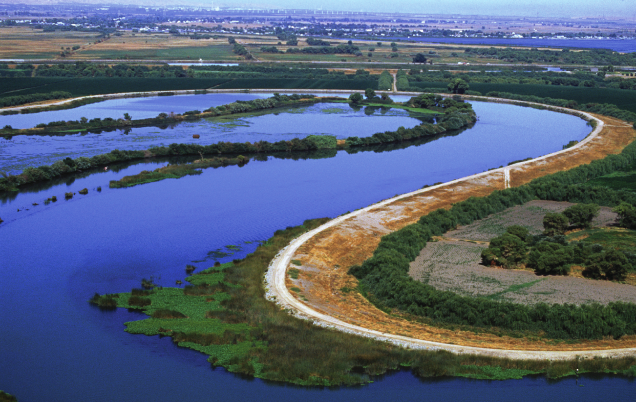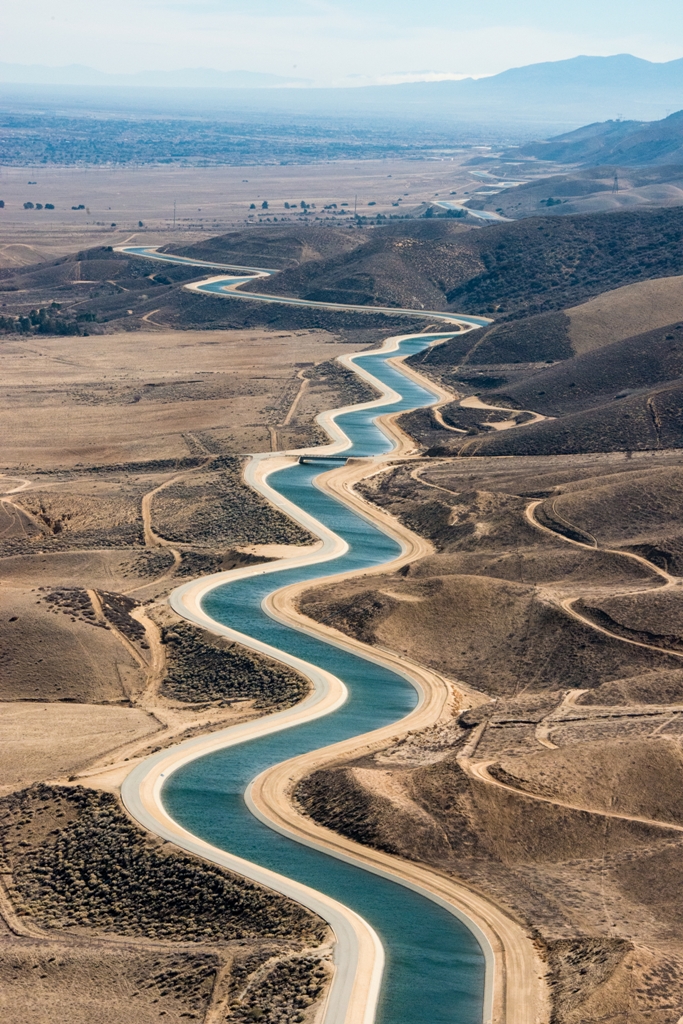
CA Sport Fishing Regulations. (Photo: nrm.dfg.ca.gov)
Ringside: Time to Gut and Amend California’s Rogue Water Agencies
California’s state bureaucrats don’t care about farmers, and their policies aren’t even helping our fish populations
By Edward Ring, October 3, 2024 3:30 am
 In California today, we have given unelected state bureaucrats the power to make decisions that affect millions of people and cost billions of dollars, and there is almost no recourse.
In California today, we have given unelected state bureaucrats the power to make decisions that affect millions of people and cost billions of dollars, and there is almost no recourse.
There is also very little public criticism of the decisions these agencies make. That’s because the people who are most familiar with the extraordinary power of these agencies are also the people who must go to them for permits and, often, critical funding. Despite the absence of meaningful public criticism, the primary narratives that state agencies use to decide water policy in California are highly debatable.
Let’s begin with the great climate boogeyman used to bludgeon us into accepting literally anything. The counter-argument is simple and compelling. Even if climate change has arrived – bringing more volatile weather patterns and hotter, longer summers – this only increases the urgency for regulatory flexibility, new approaches to protecting threatened species, and new water supply infrastructure.
The narrative that demands more flow in rivers to save endangered species is overused and increasingly divorced from observational data that points to a host of other critical variables, including habitat, food sources, fishery rules affecting the rivers and the ocean, predators, and hatchery management.
The narrative that claims too much energy is used to lift water into aqueducts, pump groundwater, purify wastewater, or desalinate seawater is unfounded for two reasons. First, because the energy required is a tiny fraction of California’s total energy consumption. Second, as is incessantly proclaimed by the renewables lobby, once solar power and battery storage is fully realized in California (assuming conventional sources of power aren’t all precipitously shut down), electricity will be abundant and cheap. Our energy shortage, like our water shortage, is not destiny. It is a political choice.
Finally, it is a ridiculous yet broadly accepted narrative that disadvantaged communities and members of California’s indigenous tribes are somehow better off under a system that dismantles practical infrastructure while making it nearly impossible to get permits and funding to construct desperately needed new infrastructure.
Most people, including most experts, know these things, but with good reason, they fear retaliation. They have to protect the interests of their water agency and their customers. They remain silent, and the problems grow worse every year.
What is at stake will affect far more than California’s farmers, who face the imminent retirement of about 1 million acres of productive land. Food, along with everything else that requires water, will be more expensive. Without access to water, new homes will not be built, prolonging California’s housing shortage. Overall, designing scarcity through perpetually escalating restrictions leaves Californians without the surpluses that could make the difference between a civil or climate driven disaster being successfully coped with, or becoming a catastrophe.
If you ask people in the industry what needs to change, the first thing everyone says is that we need to invest in more water supply infrastructure. But dig deeper, and a deeper frustration is expressed. California’s state bureaucrats don’t care about farmers, and their policies aren’t even helping our fish populations. When presented with facts and evidence that contradict their approach, they are inflexible, biased, and behave with what is often perceived as hostility towards private business in general and farmers in particular.
If these criticisms were voiced by one person, or a cohort of people who share, say, conservative ideology, that might diminish the credibility of their frustration. But it is heard, with equal emphasis, from everyone, everywhere, regardless of their Party affiliation, regardless of the crops they grow, or the size of their operations. And the overwhelming consensus finds the California Department of Fish & Wildlife (CDFW) to be the worst of the worst.
It’s difficult to briefly summarize the multitude of ways in which this agency is being accused of going rogue, but in the attempt, a few categories of abuse stand out. For what is now several years, they have mostly ignored scientific studies that clearly demonstrate the futility of merely increasing flow through the delta to restore fish populations. Every year, hundreds of thousands, if not millions of acre feet of water are directed through the delta and out to the ocean instead of being stored and sent to our farms and cities.
At the same time, CDFW is not taking decisive steps to address other ways to restore endangered fish. They aren’t modifying hatchery practices or fast-tracking experiments with dedicated wetlands where salmon or smelt can grow larger in a natural environment before being released. They aren’t trying to curb predation by loosening restrictions on bass fishing, or culling the swarms of seals that congregate in the estuaries during salmon runs. They don’t effectively address the harm caused by municipal wastewater discharge into the delta and the San Francisco Bay. They haven’t adopted the latest and much more accurate techniques to monitor populations of salmon in the ocean.
When it comes to the CDFW, questions abound, with the fate of entire industries and entire species hanging on the answer. Why, one may ask, is CDFW committed to maintaining year round flow in California’s rivers during dry years, when before the reservoirs came along, flow in many of those rivers naturally fell to a trickle?
Critics of CDFW claim that its staff, indoctrinated by the schools where they trained, and inspired by the current leadership, are committed to obstructing virtually every project in the state that involves drawing water from a river. That’s a problem, because water projects generally have to go through CDFW to get approved. This doesn’t just affect farmers, it also affects communities. When CDFW and other agencies started reducing how much water could go into the aqueducts, about 20 years ago, farmers started pumping more groundwater. Now those wells are depleted, and the only way to recharge them so that agricultural, municipal, and household wells will again function, is to convey winter flooding from the Sierra tributaries into percolation basins and furrowed fields during winter floods. To do this, conveyances are required. Try getting a permit for one of these conveyances through CDFW. By the time the requisite studies are done, and with much luck the permit is issued, funding will have expired.
If Governor Gavin Newsom is serious about saving California’s farm economy and sparing California’s cities (including some of its most disadvantaged communities) from water rationing or even no water at all – and if, ironically, he cares about threatened fish populations and wants this state and its people to develop the resilience they’re going to need if disaster strikes – then he needs to go down to CDFW and clean house. Tomorrow would not be too soon.
The California Department of Fish and Wildlife needs to be reborn as an organization that embraces scientific debate over green dogma, prioritizes results over process, and respects the balance between the needs of fish, and the needs of people.
- Ringside: California’s Drought is Over, But We Still Must Invest in Water Supply Projects - January 29, 2026
- Ringside: Why Fossil Fuel Use Must Increase – The Numerical Reality - January 22, 2026
- Ringside: The Denominators of our Prosperity – Energy and Water - January 14, 2026





There is very little public criticism of the decisions that these unelected state bureaucrats which affect millions of people and cost billions of dollars because most of the public knows next to nothing about them? The mainstream propaganda media mostly ignores their decisions and the only way for Californians to know about them is through alternative media outlets like California Globe?
As long as Newsom and the criminal Democrat mafia continue to control the state with their super-majority, the unelected bureaucrats at California Department of Fish and Wildlife will continue to push the radical far-left green agenda, prioritize process over results, and put the needs of fish over all else?
The satanic cabal that is working on exterminating mankind is also working on exterminating all life on earth. If you consider yourself an environmentalist and actually want to help “nature” you need to know that you are being used to harm and destroy the nature you think you support. Green = Death.
I worked at both the major ones; you are correct. DWR was once a shining agency but was taken over by flunkies after term limits was passed and governors had to find places for their termed out buddies to work.
And the Water Resources Control Board, only worked there my last four years and what a disaster it was.
“If Governor Gavin Newsom is serious about saving California’s farm economy …”
I think Governor Gavin is serious about implementing policies that KILL California’s farm economy, as he is on the payroll of the NWO globalist cabal that wants to “build back better” with central control…
Those pesky farmers tend to be individualists, and not generally bought into the WEF/United Nations’ vision for a global government and centralized power…
They tend to pay well, as Auntie Nancy’s portfolio tends to indicate…
Alternatively, China needs to feed its populace and California farmland can be abundant…
Bankrupt the current farmers and buy up their farms on the cheap…
Either way, Newsom gets paid nicely, and the globalists win…
And California citizens LOSE….